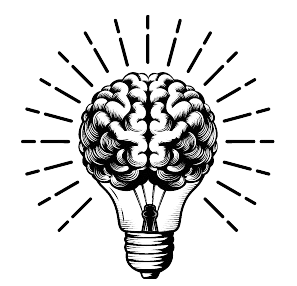Analytic philosophy is a dominant force in contemporary philosophy, characterized by its emphasis on clarity, logic, and argumentation. This blog post explores the origins of analytic philosophy, its defining features, and contributions from various philosophers that have shaped its development.
Defining Analytic Philosophy
Analytic philosophy, also known as logical analysis, focuses on precision in language and argumentation. It prioritizes clarity, logical rigor, and the use of formal methods in philosophical inquiry. This approach often contrasts with continental philosophy, which may emphasize historical context, literary style, and broader cultural analysis.
The Origins of Analytic Philosophy
Analytic philosophy originated in the late 19th and early 20th centuries, emerging from a reaction against the dominant Hegelian and idealist traditions of the time. It was primarily influenced by developments in logic, mathematics, and the philosophy of language.
1. Gottlob Frege and the Foundations of Logic
The roots of analytic philosophy can be traced to the work of German philosopher and logician Gottlob Frege. Frege’s groundbreaking work in logic, particularly his development of predicate logic and his theory of meaning, laid the groundwork for much of analytic philosophy. His 1879 book, “Begriffsschrift” (Concept Script), introduced a formal system that allowed for the precise expression of logical relationships, which was revolutionary for its time.
Why Aesthetics Matter in Philosophy- Know its roots in the Greek to Modern Philosophy
2. Bertrand Russell and Logical Atomism
British philosopher Bertrand Russell was a key figure in the development of analytic philosophy. Alongside Alfred North Whitehead, he co-authored “Principia Mathematica” (1910-1913), a monumental work that sought to ground mathematics in logical foundations. Russell’s theory of descriptions and his philosophy of logical atomism, which posited that the world consists of a series of independent facts that can be described by logical propositions, were foundational to analytic philosophy.
3. Ludwig Wittgenstein and the Philosophy of Language
Ludwig Wittgenstein, a student of Russell, made significant contributions to analytic philosophy through his works “Tractatus Logico-Philosophicus” (1921) and “Philosophical Investigations” (1953). In the “Tractatus,” Wittgenstein proposed that the structure of language mirrors the structure of reality, a view that influenced the logical positivists. Later, in “Philosophical Investigations,” Wittgenstein shifted his focus to the ways in which language is used in practice, introducing the concept of language games and emphasizing the contextual nature of meaning.
How Different Cultures Perceive Beauty and Art and Aesthetics in th Light of Western Philosophers
4. The Vienna Circle and Logical Positivism
The Vienna Circle, a group of philosophers and scientists including Moritz Schlick, Rudolf Carnap, and Otto Neurath, played a crucial role in the development of analytic philosophy through their advocacy of logical positivism. This movement emphasized the verification principle, which holds that a proposition is meaningful only if it can be empirically verified or is tautological. Logical positivists sought to eliminate metaphysics and focus on scientific and logical analysis.
Key Features of Analytic Philosophy
Analytic philosophy is characterized by several key features:
- Emphasis on Language and Logic: Analytic philosophers prioritize the analysis of language and the use of formal logic to clarify philosophical problems.
- Focus on Argumentation: Clear and rigorous argumentation is central to analytic philosophy. Philosophers construct precise arguments and critically evaluate their validity and soundness.
- Rejection of Metaphysics: Early analytic philosophers, particularly the logical positivists, sought to eliminate metaphysical speculation, focusing instead on scientifically verifiable statements.
- Attention to Detail: Analytic philosophy often involves detailed analysis of specific philosophical issues, aiming for clarity and precision.
Contributions and Impact
Analytic philosophy has made significant contributions across various domains:
1. Philosophy of Language
Analytic philosophy has deeply influenced the philosophy of language, with significant contributions from Frege, Russell, Wittgenstein, and more recently, philosophers like Saul Kripke and Hilary Putnam. The study of meaning, reference, and the use of language remains a central focus.
2. Epistemology
Analytic epistemology has produced rigorous analyses of knowledge, belief, and justification. Edmund Gettier’s 1963 paper, “Is Justified True Belief Knowledge?” challenged traditional accounts of knowledge and sparked ongoing debates.
3. Ethics and Political Philosophy
Analytic philosophy has also impacted ethics and political philosophy. Philosophers like John Rawls, with his theory of justice as fairness, and Peter Singer, with his work in applied ethics, have provided influential frameworks for understanding moral and political issues.
Conclusion
The aforementioned topic with its origins in the late 19th and early 20th centuries, has become a dominant force in contemporary philosophical thought. Grounded in the works of Frege, Russell, Wittgenstein, and the Vienna Circle, analytic philosophy emphasizes clarity, logical rigor, and precision in language. Its contributions span across the philosophy of language, epistemology, ethics, and more, continuing to shape the landscape of modern philosophy.
References
- Frege, Gottlob. “Begriffsschrift” (Concept Script), 1879.
- Russell, Bertrand, and Alfred North Whitehead. “Principia Mathematica,” 1910-1913.
- Wittgenstein, Ludwig. “Tractatus Logico-Philosophicus,” 1921.
- Wittgenstein, Ludwig. “Philosophical Investigations,” 1953.
- Ayer, A.J. “Language, Truth, and Logic,” 1936.
- Rawls, John. “A Theory of Justice,” 1971.
- Singer, Peter. “Animal Liberation,” 1975.
- Kripke, Saul. “Naming and Necessity,” 1980.

